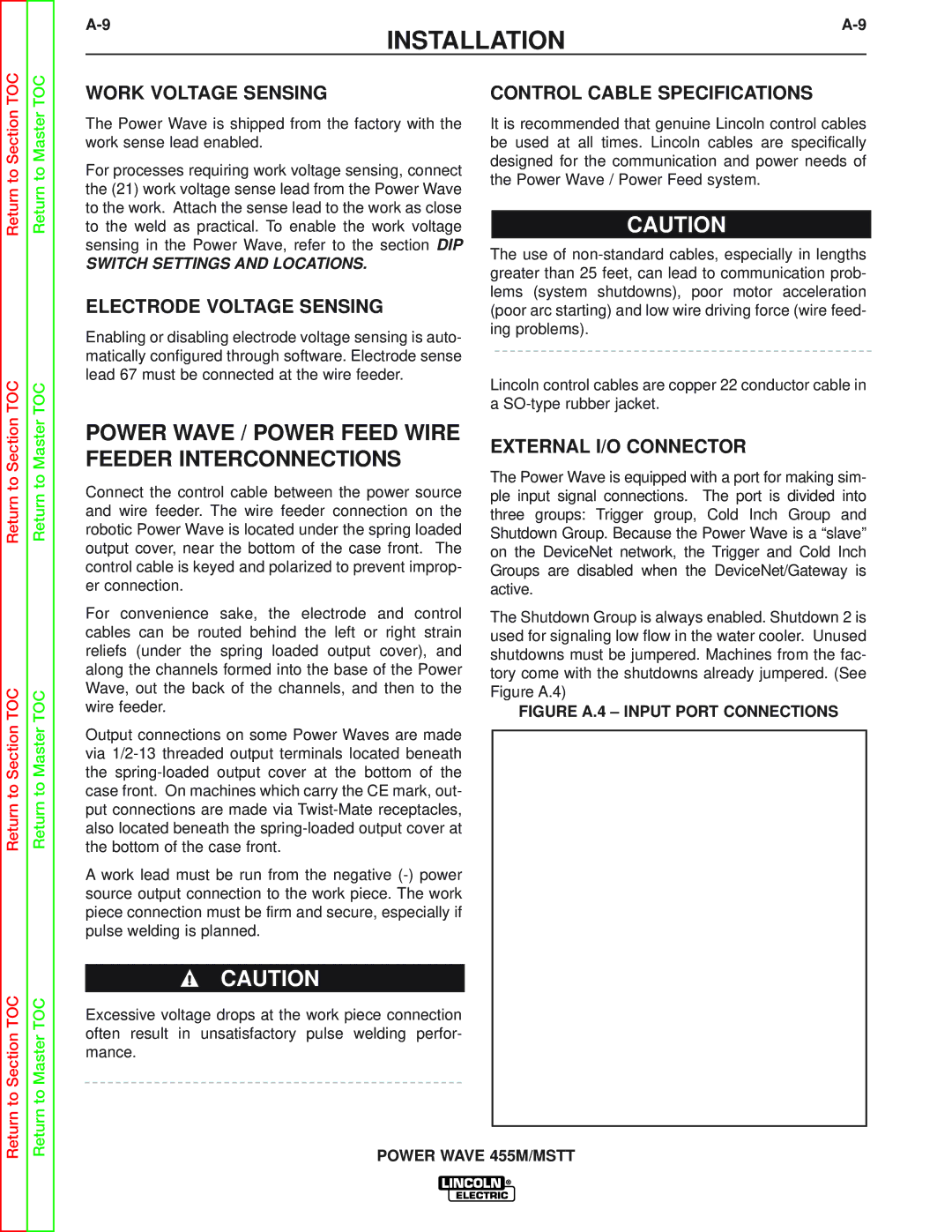SVM173-A specifications
The Lincoln Electric SVM173-A is a highly regarded welding power supply that stands out for its advanced features, robust performance, and innovative technologies. This machine is specifically designed to meet the demands of both industrial and commercial welding applications, making it a versatile choice for professionals.One of the main features of the SVM173-A is its high efficiency, which contributes to reduced energy costs and enhanced productivity. The device operates on a powerful DC output, ensuring stable and reliable arc performance. This is particularly beneficial when working with various materials, allowing for smooth and consistent welds.
The SVM173-A leverages Lincoln Electric's proprietary inverter technology. This innovation allows for a lighter weight and more compact design without compromising on power. The inverter technology also enables precise control of the welding parameters, which is critical for maintaining quality across different welding tasks. Additionally, the machine features a wide input voltage range, accommodating various power sources and enhancing its adaptability on job sites.
Another key characteristic of the SVM173-A is its user-friendly interface. The machine is equipped with an intuitive control panel that allows users to easily adjust settings, making it accessible for both novice and experienced welders. The digital display provides clear readouts of output parameters and error notifications, facilitating quick troubleshooting in the field.
Safety is paramount in welding operations, and the SVM173-A incorporates several protection features. These include overcurrent protection, overheating protection, and circuit protection, ensuring that the machine operates safely and efficiently under various conditions.
The SVM173-A also supports a wide range of welding processes, including MIG, TIG, and stick welding. This flexibility makes it an ideal choice for workshops that require a multi-process machine capable of handling diverse applications. Furthermore, the SVM173-A supports spool gun operation, which is particularly useful for aluminum welding, enhancing its versatility even further.
In summary, the Lincoln Electric SVM173-A is a powerful and adaptable welding machine that combines innovative technologies, user-friendly features, and robust safety mechanisms. Its high efficiency, precision control, and multi-process capabilities make it an excellent investment for professionals seeking reliable performance in demanding environments. Whether for heavy-duty industrial use or more specialized applications, the SVM173-A stands as a testament to Lincoln Electric's commitment to quality and innovation in welding solutions.

